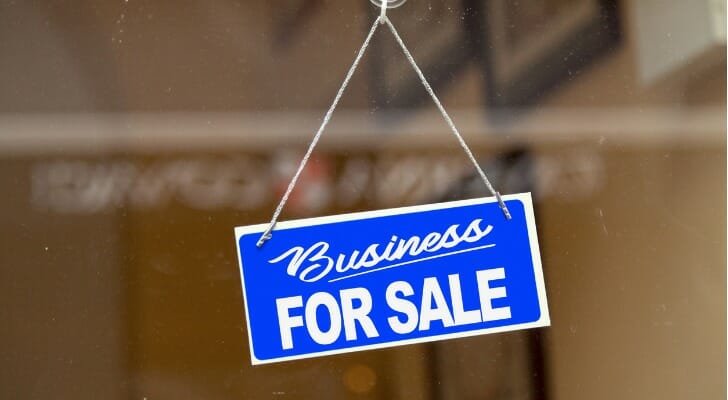
Thinking about selling your business? There are several ways to calculate the selling price of a business — but not everyone agrees on what method is best. Here’s a breakdown of the most popular options to determine the value of your enterprise.
Do you have questions about how to manage the finances of your small business? Speak with a financial advisor who serves your area today.
Selling a Business
Once you’ve decided to explore selling your business, the biggest question is how to price it. If the asking price is too low, you’ll leave money on the table. Asking too much, on the other hand, will put buyers off. And if it languishes on the market for too long with an inflated price tag, that can further depress the ultimate selling price and alienate potential buyers.
But there is more than one way to accurately value your business. Most experts recommend using a variety of calculation methods, even though each will likely generate a different number. The efficacy of this approach lies in combining your results to figure out the optimum asking price.
Another thing most experts agree on: The likelihood that, if you’re like most sellers, you probably think your business is worth more than it actually will fetch on the market. And while it’s understandable that owners are attached to their enterprises, objective valuation methods should trump emotion when setting the asking price.
How to Determine the Value of a Business
In general, there are a few widely recognized ways to calculate the selling price of a business, and each come with their own set of pros and cons.
Comparable Business Sales: One of the simplest ways to tally your asking price is to find out what comparable nearby businesses have sold for. That said, it can be hard to track down recent sales of companies in the same market as you. But if you’re able to, try to track down this info by looking in both the area where your business is located or areas in other parts of the country with similar demographics.
Asset Valuation: Another way to figure out what a business is worth is to add up the value of its assets. It’s not difficult to generate values for tangible assets, such as equipment, fixtures and inventory. But intangibles — things like brand recognition, intellectual property and contracts — may be harder to value. Asset valuation also ignores the potential future earnings the business will generate.
Industry Formulas: Industry calculations typically express business value as a multiple of annual sales or profits. These multiples vary by industry and take into account billings, collections, inventory and other metrics. In general, the average company’s asking price can be expressed as 0.6 multiplied by annual revenue.
Getting a Professional Business Appraisal

Professional business appraisers will use some or all of these methods as well as others to arrive at several potential selling prices. In general, an appraiser will weigh some methods more heavily than others, use their own experience as a gauge, and rely on statistical models common to their industry. Once they’ve crunched the numbers using a variety of methods, they’ll generate a single likely selling price or range.
But professional appraisers come with their own price tag, charging anywhere from several thousand to tens of thousands of dollars for an appraisal, depending on the business size and complexity. That cost can put many business sellers off. An objective expert appraisal, though, can be well worth it especially if you’re selling to family members (or when a lender requires it).
Other Business Pricing Factors
Businesses are complex systems, and a multitude of factors influences the asking and selling price of any given business. These factors might include how smoothly the business is operating; how well-documented its financial records are; where the business is located; and its competitive position in its industry.
Another aspect to consider is how motivated the seller is and the terms of the sale. For example, a business seller who will take a note may be able to get a higher price than one who demands cash.
If these valuation methods churn out unacceptably low numbers, there are steps a seller can take to increase the value of their business. This might include everything from improving the quality of record-keeping and streamlining operations, to assuring compliance with safety regulations and housing a professional human resources department complete with policy manuals and contracts for key employees.
Bottom Line

While there are many avenues available to an owner looking to sell their business, there is no single best way to value an enterprise. Instead, business sellers are usually better served by employing several different methods and combining them to come up with a suggested asking price. In addition, a professional business appraiser can bring objectivity and rigor to the process, and may be necessary if a lender is financing the purchase.
Tips for Business Owners
- Just as running a business requires a variety of skills, setting a price for selling a business calls for a multi-pronged approach. Because emotion plays big role when a business owner is selling, using objective valuation methods is essential.
- If you’re a small business owner looking to sell, consider working with a professional like a financial advisor to help you evaluate your options. Finding a financial advisor doesn’t have to be hard. SmartAsset’s free tool matches you with up to three vetted financial advisors who serve your area, and you can interview your advisor matches at no cost to decide which one is right for you. If you’re ready to find an advisor who can help you achieve your financial goals, get started now.
Photo credit: ©iStock.com/Gwengoat, ©iStock.com/Jirapong Manustrong, ©iStock.com/jacoblund